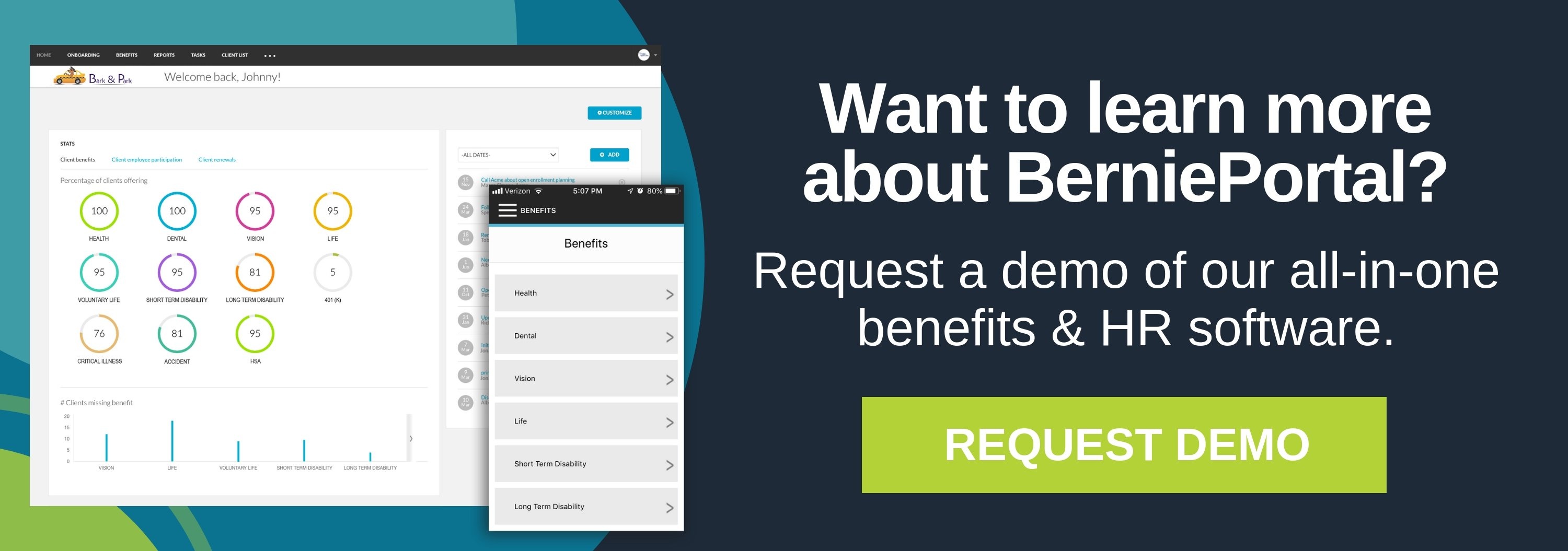
Written by
Alex Tolbert
Alex is the founder and CEO of BerniePortal. He is a recognized thought leader on technology, HR and benefits.
Recruiting college grads? Focus on the 401(k)

Why a 401(k) is part of a competitive recruitment strategy
Check out this column in BenefitsPro:
Many small and mid-sized employers have recruiting on the brain. With a low national unemployment rate and new college graduates flooding the job market, your clients are likely turning their attention to their recruitment strategy. But there’s one mistake they may be making when it comes to recruiting millennials.
A robust benefits package is usually the cornerstone of many organizations’ recruitment strategies. But if your clients are trying to recruit recent college grads — the youngest generation of millennials — they may be focusing too much on their medical benefit options and not enough on other offerings that would actually make them more competitive with new hires at any age.
In particular, if your clients aren’t providing and funding a 401(k), they are likely losing out on valuable talent. Here’s how advisors can help employers think about this.
Why the health plan won’t attract young talent
Most recent college graduates are around 22 or 23 years old. Because of the Affordable Care Act, a lot of these candidates will remain on their parent’s health plan for another three to four years.
As a result, a rich medical benefits plan isn’t very valuable to these candidates, and it shouldn’t be the defining characteristic of your recruitment strategy.
Of course, your clients will have other employees over the age of 26 who will benefit from a health plan offering, as well as some younger employees who do not have their parents’ plan as an option. But employers with many millennial employees have an opportunity here, as well. This generation may be more receptive to HSA-eligible plans, provided you can help your clients equip employees with the tools they need to be successful with this kind of health plan.
As a result, brokers can play a key role in helping employers take advantage of cost containment strategies that allow groups to provide a diversified, competitive benefits package.
The benefits of a 401(k)
Committing to a 401(k) option is one of the best things your clients can do to attract top talent, from new graduates to older employees.
While some employers may balk at the first-year financial commitment of providing and funding a 401(k), most find it quickly pays for itself in recruitment and retention.
Additionally, administering a 401(k) is not as challenging as some employers anticipate. First, 401(k) costs are easier to project than the health plan. A flat percentage of payroll is easier to plan for than varying health care costs.
Second, there are new vendors and tools that make it easier for small and mid-sized employers to offer 401(k)s. For example, one vendor is Ubiquity, a low-cost 401(k) administrator that partners with Vanguard to allow employees access to low-cost funds.
Why is a 401(k) so important to a competitive benefits strategy? It’s a benefit that all employees can take advantage of, regardless of age or insurance need.
Younger employees, as well as married employees or any other workers who have additional insurance options, may choose not to participate in the health plan. If your client’s benefits strategy is focused on the health plan, these employees will be missing out on the cornerstone of their employer’s retention strategy. On the other hand, a 401(k) is valuable to all workers.
Further, marketing the benefits of compounding interest can make this a particularly competitive offering for younger workers and new graduates.
The takeaway is that advisors serving the small and mid-sized market can help their clients diversify their benefits package beyond the health plan. In particular, a 401(k) option will be a valuable part of a competitive recruitment strategy, especially for groups trying to attract younger workers.

Written by
Alex Tolbert
Alex is the founder and CEO of BerniePortal. He is a recognized thought leader on technology, HR and benefits.



Submit a Comment